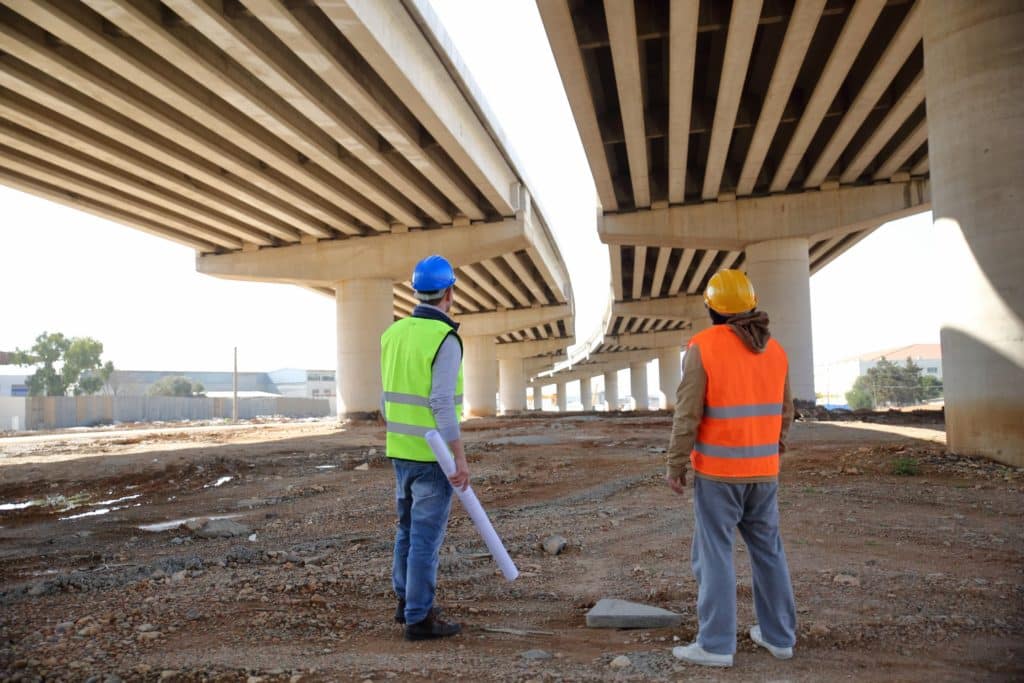

Everyone interacts daily with transportation engineering firms as they commute to and from work and home and run errands via mass transit or roadways. Of course, the average person doesn’t typically pay mind to the intricacies of the transportation they use, but the reality is that transportation or traffic engineering impacts everything about how we get from point A to point B. Read on to learn more about the engineers and transportation engineering firms that move us all.
What is Transportation Engineering?
Transportation engineering, also referred to as transit engineering, is an arm of civil engineering that uses scientific principles to create safe and efficient transportation facilities like waterways, railroads, and streets to move people and goods where they need to go. Transportation engineers create plans and designs for these systems, as well as operate and manage them.
What Do Transportation Engineers Do?
Transportation engineering firms provide services to public and private clients to create infrastructure in the form of transportation facilities. Making infrastructure that really works depends on understanding not only the environment, but the users of that infrastructure. To do this, engineers inventory the area and the transit systems already in place before beginning a project.
The information transportation engineers collect is a vital source of guidance as they begin to forecast the potential conditions of a new system and as they plan and implement improvements to the existing infrastructure. The engineers then work with local authorities, residents, consultants and permitting agencies to coordinate new additions and improvements in communities. They also determine the scope, size, materials, geometry, signals and marking of transportation facilities we use every day.
Why Does This Work Matter?
![]() The decisions that transportation engineers make create more efficient, environmentally-stable cities and businesses and save us money at the same time. In fact, transportation engineers designed, planned and oversaw the construction of more than 100 roundabouts, or traffic circles, in the city of Carmel, Indiana, saving the citizens about $5,000 per intersection in electricity costs and 24,000 gallons of gas per year per roundabout.1 These significant cost and gas savings were attributed to the engineers finding calculated and smart ways to reduce the time that vehicles spent idling their engines at intersection.
The decisions that transportation engineers make create more efficient, environmentally-stable cities and businesses and save us money at the same time. In fact, transportation engineers designed, planned and oversaw the construction of more than 100 roundabouts, or traffic circles, in the city of Carmel, Indiana, saving the citizens about $5,000 per intersection in electricity costs and 24,000 gallons of gas per year per roundabout.1 These significant cost and gas savings were attributed to the engineers finding calculated and smart ways to reduce the time that vehicles spent idling their engines at intersection.
Perhaps the greatest benefit of all, though, is how much safer the right transportation engineering modifications can make our communities. As the citizens of Carmel, Indiana experienced firsthand, installing roundabouts substantially decreases traffic accidents by making intersections safer. Some studies even show a 90% reduction in fatal accidents and an 80% reduction in accidents with serious injuries.2
The Takeaway
Transportation engineering firms help businesses and communities run more efficiently and safely. The impacts of their work are felt far and wide and have implications on how we live our lives. If you need to get moving in the right direction with transportation engineering services, contact us today.
